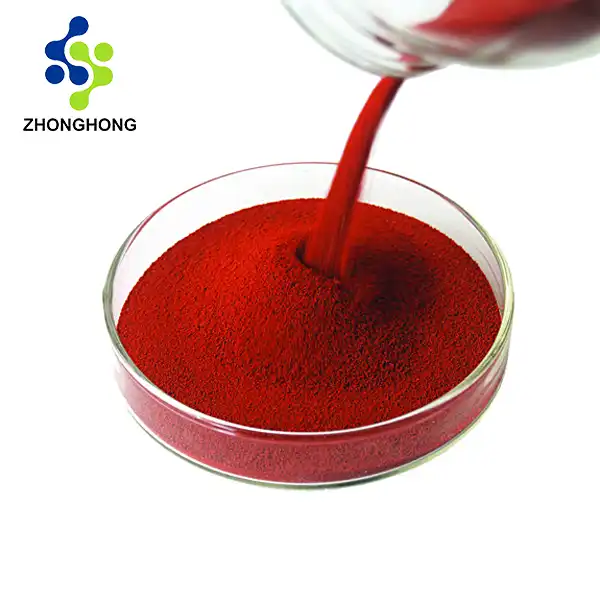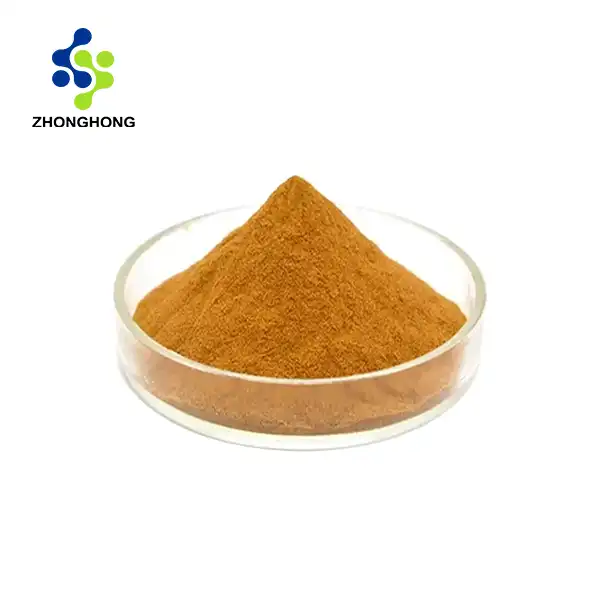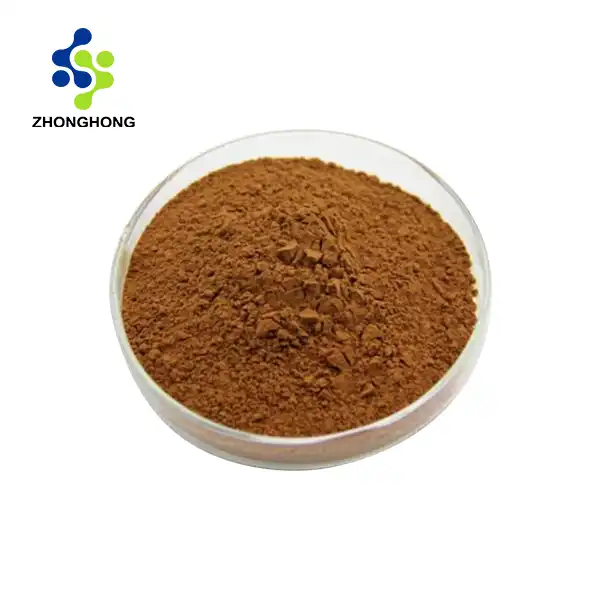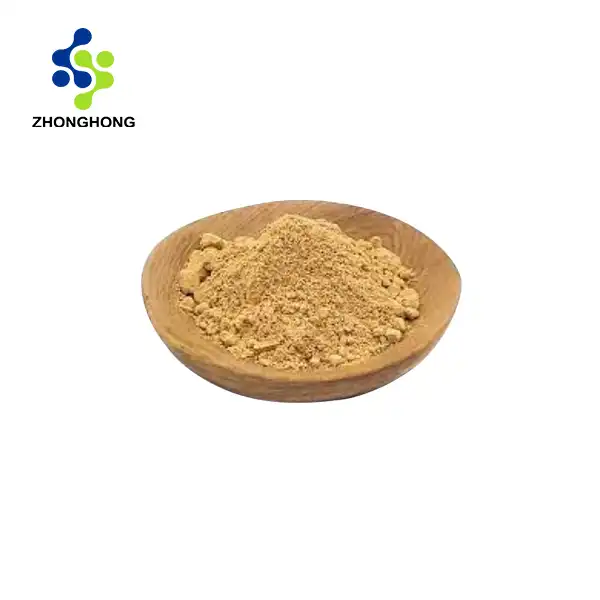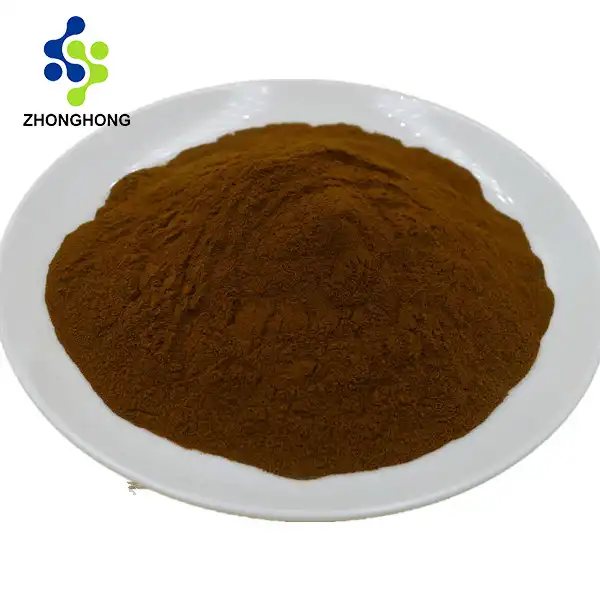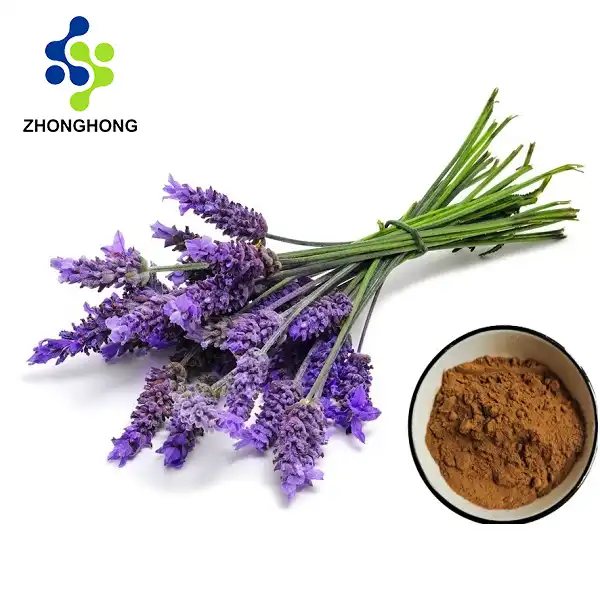Is Choline Glycerophosphate Safe? What You Need to Know?
2024-11-19 20:09:05
Choline glycerophosphate is a compound that has garnered attention in the health and wellness community for its potential cognitive and physical benefits. As more people consider incorporating this supplement into their routines, it's crucial to understand its safety profile and proper usage. This comprehensive guide will delve into the potential side effects, who should exercise caution, and best practices for safe supplementation of choline glycerophosphate.
Potential Side Effects of Choline Glycerophosphate
While choline glycerophosphate is generally considered safe for most individuals when taken as directed, it's essential to be aware of possible side effects. Some people may experience mild gastrointestinal discomfort, including:
- Nausea
- Diarrhea
- Stomach cramps
- Indigestion
These symptoms are typically mild and transient, often resolving as the body adjusts to the supplement. However, if these symptoms persist or worsen, it's advisable to discontinue use and consult a healthcare professional.
In rare cases, some individuals may experience more severe side effects, such as:
- Hypotension (low blood pressure)
- Dizziness
- Syncope (fainting)
- Fishy body odor
The fishy body odor, known as trimethylaminuria, occurs when the body cannot properly metabolize trimethylamine, a byproduct of choline metabolism. While this side effect is uncommon, it can be distressing for those affected. It's worth noting that these more severe side effects are typically associated with high doses or long-term use of choline supplements. Adhering to recommended dosages and consulting with a healthcare provider can significantly reduce the risk of experiencing these adverse effects.
Who Should Avoid Choline Glycerophosphate?
While choline glycerophosphate can be beneficial for many, certain groups should exercise caution or avoid its use altogether:
Pregnant and Breastfeeding Women
Choline is essential for fetal brain development, and adequate intake is crucial during pregnancy and lactation. However, the safety of choline glycerophosphate supplementation during these periods has not been thoroughly studied. Pregnant and breastfeeding women should consult their healthcare provider before taking any choline supplements, including choline glycerophosphate.
Individuals with Liver Disease
The liver plays a crucial role in choline metabolism. People with liver disease or impaired liver function may have difficulty processing choline effectively. This could potentially lead to an accumulation of choline in the body, which may exacerbate liver problems. Those with liver conditions should seek medical advice before using choline glycerophosphate.
Individuals with Trimethylaminuria
As mentioned earlier, some people lack the enzyme necessary to break down trimethylamine, a byproduct of choline metabolism. For these individuals, consuming choline supplements can lead to a fishy body odor. If you have been diagnosed with trimethylaminuria or experience this symptom after taking choline, it's best to avoid choline glycerophosphate and other choline supplements.
People Taking Certain Medications
Choline glycerophosphate may interact with certain medications, potentially altering their effectiveness or increasing the risk of side effects. Individuals taking the following types of medications should consult their healthcare provider before using choline glycerophosphate:
- Methotrexate
- Anticoagulants (blood thinners)
- Cholinergic medications
- Anticholinergic medications
Individuals with Bipolar Disorder
Some research suggests that high doses of choline may exacerbate symptoms of bipolar disorder, particularly during manic episodes. If you have bipolar disorder, it's crucial to discuss the use of choline supplements with your mental health professional before incorporating them into your regimen.
Best Practices for Safe Supplementation
To ensure the safe and effective use of choline glycerophosphate, consider the following best practices:
Start with a Low Dose
When beginning any new supplement regimen, it's wise to start with a lower dose and gradually increase it as tolerated. This approach allows your body to adjust and helps you identify any potential adverse reactions early on. Begin with the lowest recommended dose on the product label or as advised by your healthcare provider.
Monitor Your Response
Pay close attention to how your body responds to choline glycerophosphate. Keep a journal to track any changes in cognitive function, physical performance, or overall well-being. Also, note any side effects, no matter how minor they may seem. This information can be valuable when discussing the supplement's effectiveness with your healthcare provider.
Choose High-Quality Products
Not all supplements are created equal. Choose choline glycerophosphate products from reputable manufacturers that adhere to Good Manufacturing Practices (GMP). Look for third-party testing certifications, which indicate that the product has been independently verified for purity and potency.
Adhere to Recommended Dosages
The appropriate dosage of choline glycerophosphate can vary depending on factors such as age, gender, and overall health status. The Institute of Medicine provides the following Adequate Intake (AI) guidelines for total choline intake:
- Adult men: 550 mg/day
- Adult women: 425 mg/day
- Pregnant women: 450 mg/day
- Breastfeeding women: 550 mg/day
However, these guidelines refer to total choline intake from all sources, including diet. When considering choline glycerophosphate supplementation, it's crucial to account for dietary choline intake and consult with a healthcare professional to determine an appropriate supplemental dose.
Maintain a Balanced Diet
While supplements can be beneficial, they should not replace a balanced diet. Many foods are rich in choline, including:
- Eggs
- Liver
- Beef
- Soybeans
- Chicken
- Fish
- Cruciferous vegetables (e.g., broccoli, Brussels sprouts)
Incorporating these foods into your diet can help ensure adequate choline intake and may reduce the need for supplementation.
Stay Hydrated
Proper hydration is essential when taking any supplement, including choline glycerophosphate. Adequate water intake can help mitigate potential gastrointestinal side effects and support overall health. Aim to drink at least 8-10 glasses of water per day, or more if you're physically active or live in a hot climate.
Consult with Healthcare Professionals
Before starting any new supplement regimen, it's crucial to consult with a healthcare professional, particularly if you have pre-existing health conditions or are taking medications. They can provide personalized advice based on your individual health status and needs.
Cycle Supplementation
Some experts recommend cycling choline supplements to prevent potential tolerance or dependence. This approach involves taking the supplement for a set period (e.g., 4-6 weeks) followed by a break (e.g., 1-2 weeks). However, the necessity and effectiveness of cycling choline glycerophosphate have not been conclusively established. Discuss this strategy with your healthcare provider to determine if it's appropriate for your situation.
Store Properly
To maintain the potency and safety of your choline glycerophosphate supplement, store it according to the manufacturer's instructions. Typically, this means keeping it in a cool, dry place away from direct sunlight. Ensure the container is tightly sealed when not in use, and keep it out of reach of children and pets.
Be Aware of Interactions
In addition to potential medication interactions, choline glycerophosphate may interact with other supplements or herbs. For example, high doses of choline may enhance the effects of caffeine. If you're taking multiple supplements or herbal products, consult with a healthcare professional or a qualified nutritionist to ensure there are no concerning interactions.
Listen to Your Body
Ultimately, every individual's response to supplements can vary. Pay attention to how your body reacts to choline glycerophosphate. If you experience any unusual symptoms or don't feel well after taking the supplement, discontinue use and consult your healthcare provider. By following these best practices, you can maximize the potential benefits of choline glycerophosphate while minimizing the risk of adverse effects. Remember, supplements are meant to complement a healthy lifestyle, not replace it. A balanced diet, regular exercise, adequate sleep, and stress management are all crucial components of overall health and well-being.
Conclusion
In conclusion, while choline glycerophosphate is generally considered safe for most individuals when used appropriately, it's essential to approach supplementation with caution and awareness. By understanding potential side effects, recognizing who should avoid this supplement, and adhering to best practices for safe use, you can make informed decisions about incorporating choline glycerophosphate into your health regimen. If you want to get more information about this product, you can contact us at liaodaohai@gmail.com.
References
1. Institute of Medicine. Dietary Reference Intakes for Thiamin, Riboflavin, Niacin, Vitamin B6, Folate, Vitamin B12, Pantothenic Acid, Biotin, and Choline. Washington, DC: National Academies Press; 1998.
2. Zeisel SH, da Costa KA. Choline: an essential nutrient for public health. Nutrition Reviews. 2009;67(11):615-623.
3. Wallace TC, Fulgoni VL 3rd. Assessment of Total Choline Intakes in the United States. Journal of the American College of Nutrition. 2016;35(2):108-112.
4. Poly C, Massaro JM, Seshadri S, et al. The relation of dietary choline to cognitive performance and white-matter hyperintensity in the Framingham Offspring Cohort. The American Journal of Clinical Nutrition. 2011;94(6):1584-1591.
5. Fischer LM, daCosta KA, Kwock L, et al. Sex and menopausal status influence human dietary requirements for the nutrient choline. The American Journal of Clinical Nutrition. 2007;85(5):1275-1285.
6. Blusztajn JK, Slack BE, Mellott TJ. Neuroprotective Actions of Dietary Choline. Nutrients. 2017;9(8):815.
_1728976869676.webp)
